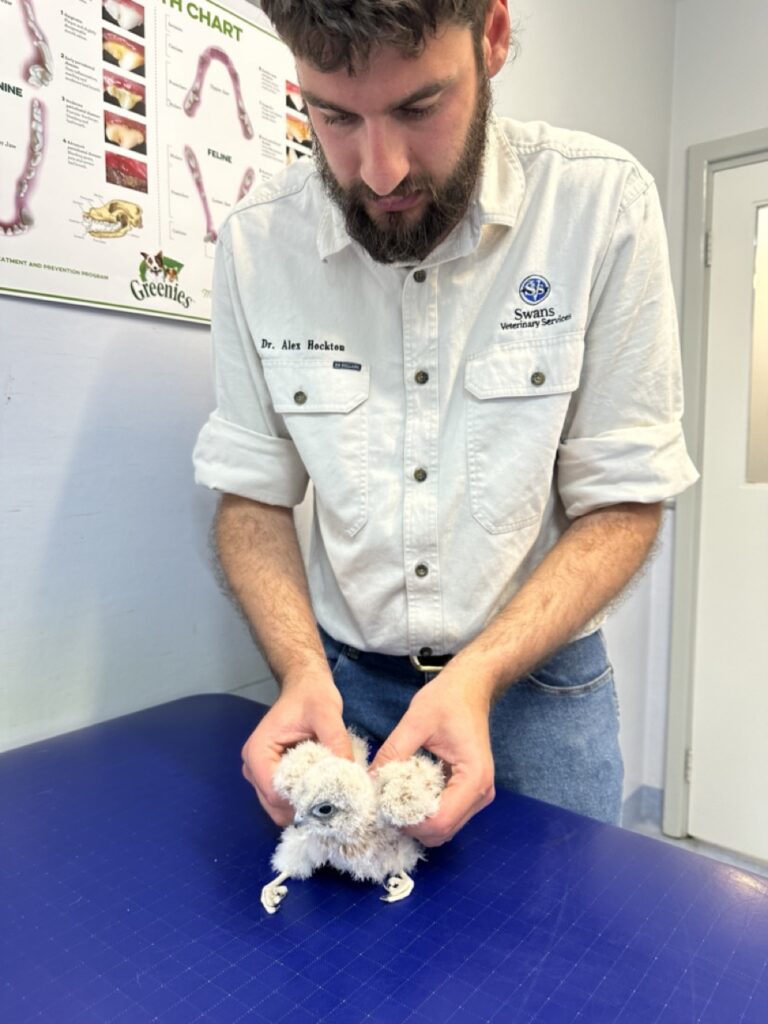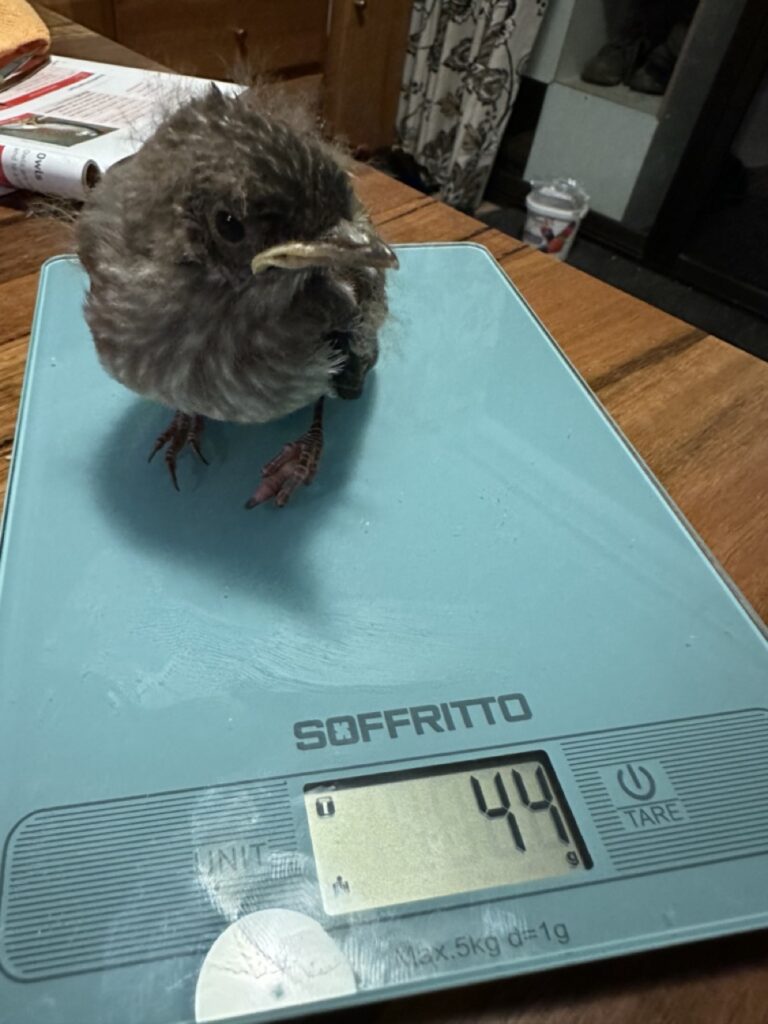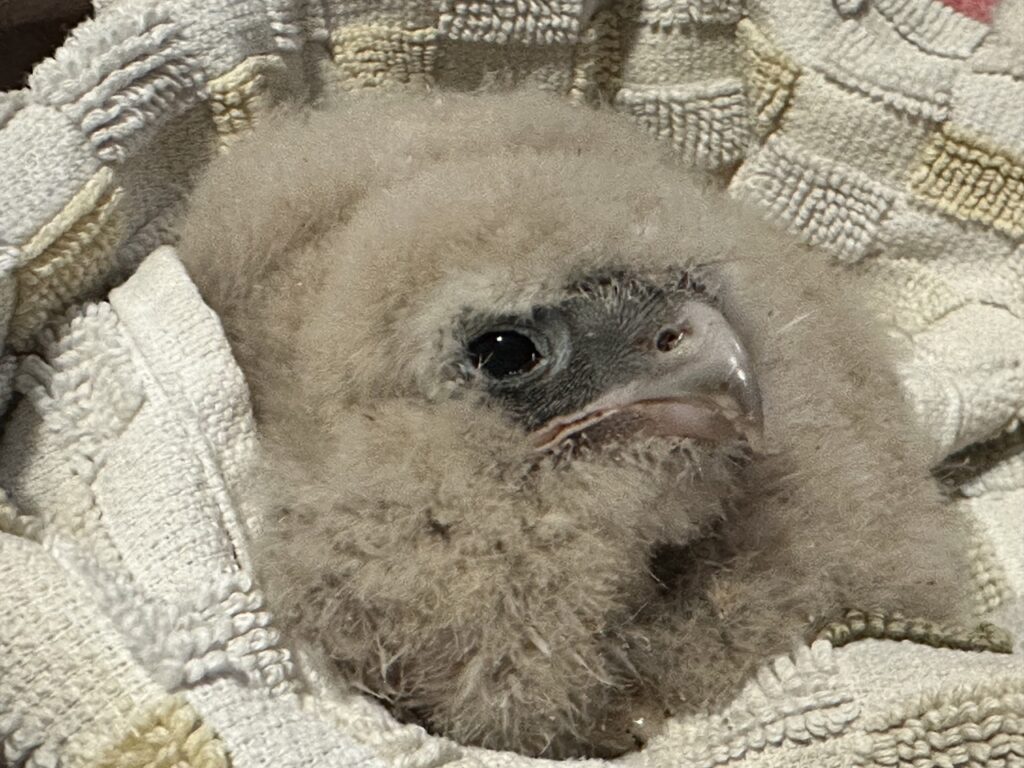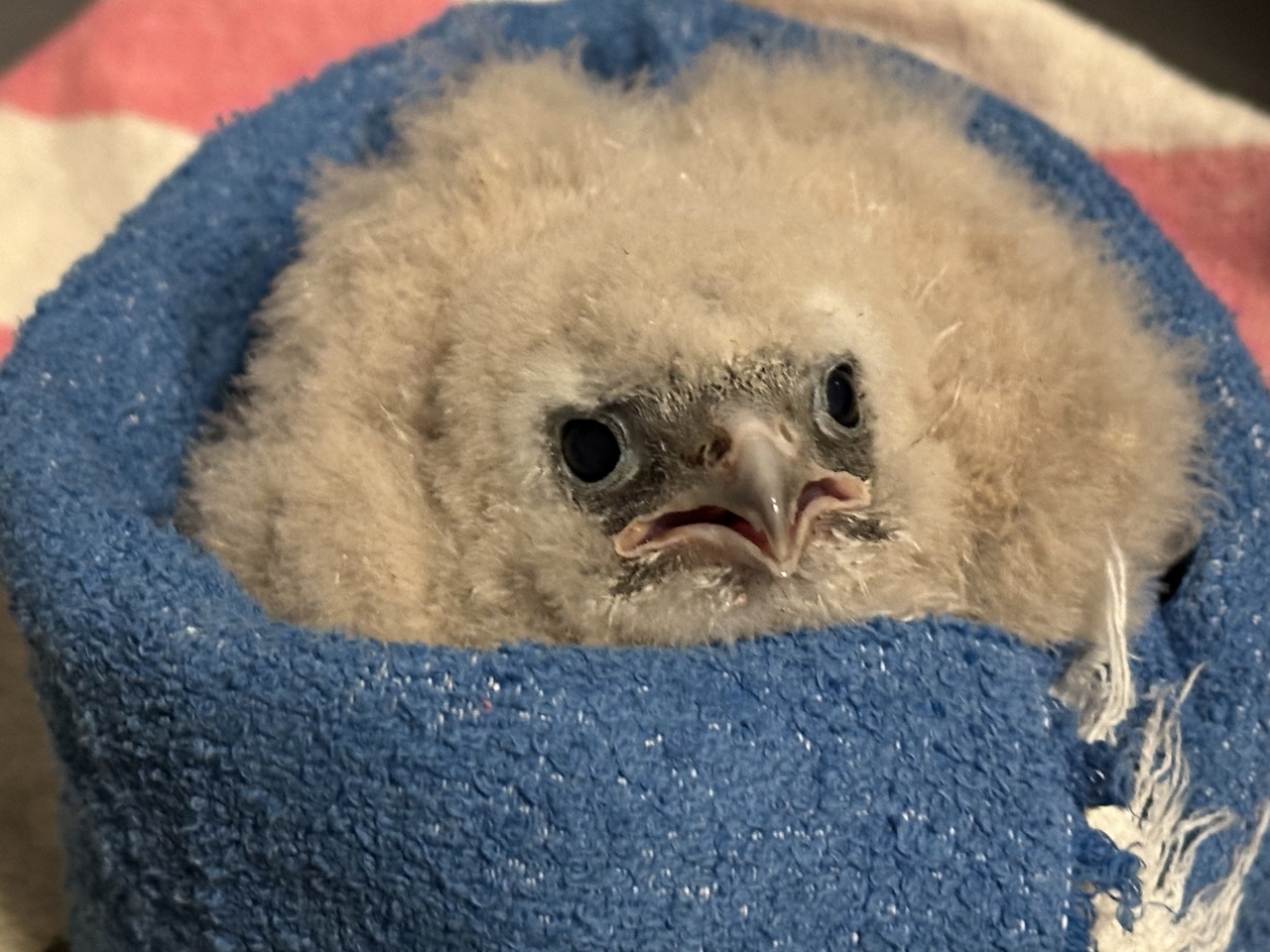A baby Kestrel. Photos: Esperance SWIRL
Esperance’s Community Citizen of the Year is asking people not to “rescue” baby birds they find on the ground until they are sure the parents are not trying to teach them to fly.
Wildlife rescuer Lynn Kidd from Esperance Roo Haven said this could lead to the death of a fledgeling bird.
“I want to say, ‘will you stop picking up the babies’,” she said.


“The law requires if it is a magpie, a butcher bird or a currawong, they have to be euthanised as they will get butchered and killed by the tribe.”
Wildlife rescuer Lori-Ann Shibish of Esperance SWIRL said sometimes caring and compassionate people could inadvertently make a situation worse, as in the case of removing healthy fledgelings from their home territory.
“But, if a fledging is injured, it should first be assessed by a veterinarian, before being admitted to a wildlife rehabilitation facility,” she said.
“Resist the urge to give injured birds food or water as this could cause the bird to aspirate or delay any treatment it might need.

“Birds sometimes die from shock rather than their injuries, so swift but careful action is a necessity as delays can increase stress.”
Ms Shibish said they had received several calls for baby pigeons and, sadly, they could not help.
“As compassionate as we are, licenced wildlife carers cannot accept feral pigeons (Columba livia) as that would go against our licence conditions, being pigeons are a pest species,” she said.
“Additionally, pigeons are a health risk to humans, pets, and livestock as they can transmit fatal diseases as well as harbouring lice, fleas, mites and ticks. “Thus accepting pigeons into our facilities could impact the health of other wildlife in care.”




